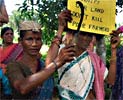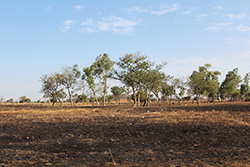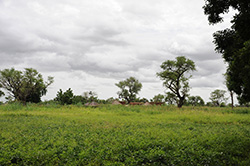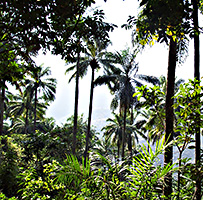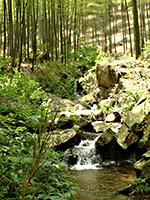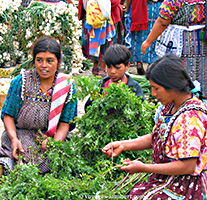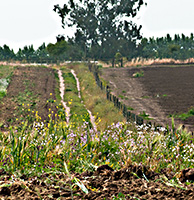A village in Burkina Faso – 1990
Saga is still alive!
Nogma is tied to a pole in the centre of the village. She could cry, but she refuses to shed one tear. A young man walks up to her and cuts the ropes. She is free again. “You killed Saga,” she says. “I feel sorry for you,” he answers without expression. The village elders had decided in the interest of the entire village, and their decision is final.
A few weeks ago Saga had returned to the village after two years of absence. How happy Nogma was! But she was not allowed to show it. She had been married off to an old man while he was away. That old man was the father of Saga. Her family and Saga’s had decided so, but Saga still remained her great love.
Saga had become furious when he heard that Nogma was married to his father. When Saga left he had put his hand on his heart and had promised Nogma to come back to marry her. “It was impossible to avoid it, Saga. They forced me against my will into the marriage,” Nogma said looking at Saga with big, wet eyes. “I still love you and no one else.” “And I love you,” Saga answered. Both smiled greatly relieved that their mutual love was still alive.
For a few weeks, they met each other secretly. These were wonderful hours that they spent together, but their rendezvous soon became known publicly. The village elders decided that Saga had to be killed by a young man of the village. Saga’s brother Kougri was assigned by lot to perform the act.
One night, Kougri and a few other men went with torches to the straw hut that Saga had built for himself outside the village. He snuck inside and stabbed his knife into the foot of the bed. Saga awoke startled, but Kougri forced his hand over Saga’s mouth. He whispered an explanation to his brother and made a hole in the back side of the hut for Saga to escape. He wounded himself with the knife. He could not kill his brother even when the customs of the village demanded it.
Kougri then came out of the hut staggering and bleeding. He said: “That dirty dog attacked me. Set his hut on fire!” In the village, he showed his bloody knife to the old men. They nodded in approval. The village honour was saved.
The next morning when everyone was working, the mother of Saga visited Nogma. Her son Kougri walked behind her. “Tell her,” she said. “I didn't kill Saga,” said Kougri simply. Nogma felt that she could dance of happiness although she could not show her joy. She would not show it to anybody. Soon she would look for Saga, and she would find him.
_______________________
Source
The movie Tilaï (The Law – 1990) from the film-maker Idrissa Ouédraogo from Burkina Faso beautifully paints the atmosphere of a remote village in the savannah. The traditional village laws are gradually called into question.
Go to:
= the next page: Rolling in money - a village in Burkina Faso – 1990, story 143.
= the Table of contents, story 142.
